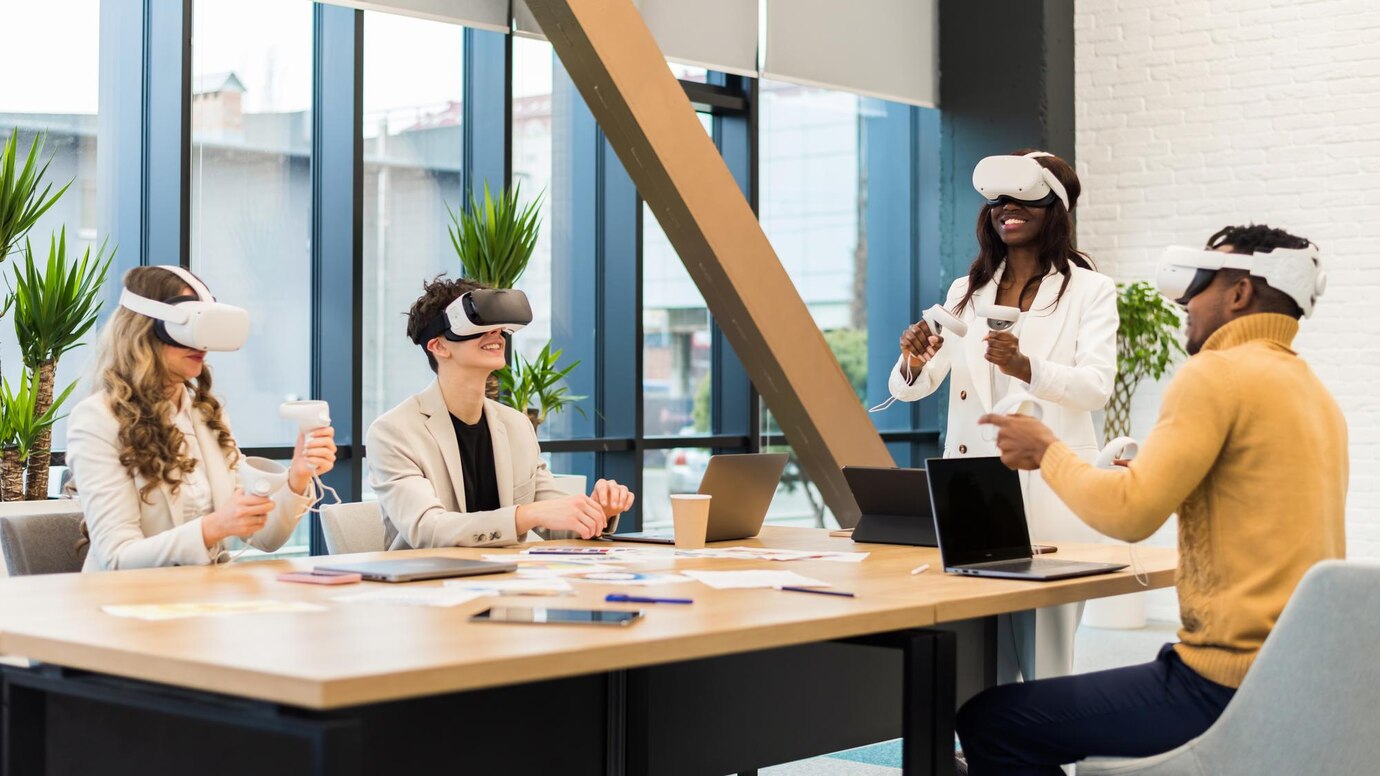
Thanks to lightning-fast technological development, the future of employment is experiencing a sea change. The modern workplace is adapting to the needs of the information era with the help of technologies like remote collaboration tools, automation, and artificial intelligence (AI). From changing job descriptions and skill sets to altering the fundamental definition of "work" and its physical location, this article delves into the many ways technology is influencing the future of employment.
Programs that automate and use AI:
Integrating automation and AI into different businesses is one of the most important themes in the future of employment. Robots are taking over more and more mundane jobs, allowing humans to concentrate on higher-level, more creative responsibilities. The significance of upskilling and adjusting to a tech-driven workforce is highlighted by the fact that, while automation increases efficiency, it also prompts concerns around the possible elimination of certain employment.
Collaborating Online and Working Remotely:
Digital collaboration tools became more important as the COVID-19 epidemic hastened the transition to distant work. For teams that are geographically dispersed, virtual communication technologies, project management systems, and video conferencing have become indispensable. Hybrid models that mix remote freedom with in-person collaboration are expected to redefine the typical office space and usher in a new era of work.
Progress in Abilities and Ongoing Education:
Workers' abilities will need to adapt to new technology as it develops. To keep up with the ever-evolving employment market, it will be essential to prioritize lifelong learning and skill enhancement in the years to come. Along with technical knowledge, soft skills like creativity, flexibility, and critical thinking are rising in value. To be successful in the ever-changing workplace of the future, businesses and their workers must both commit to a culture of continuous learning.
A.I. and VR technology:
There are more and more business uses for AR and VR than only in the gaming and entertainment industries. Thanks to these innovations, training for employees is becoming far more engaging and dynamic. Using AR and VR, we can improve learning outcomes and shorten the learning curve for new abilities in simulated job training and virtual onboarding sessions.
Information Analytics for Making Decisions:
Organizational performance is increasingly dependent on data-driven decision-making. To improve operational efficiency, consumer behavior, and staff performance, businesses are using big data and analytics. Organizations may use this data to improve overall productivity, streamline operations, and make better choices. Employees in a wide range of positions are realizing the need of data literacy.
Versatility and Harmony in Work and Life:
More work-life balance is being prioritized as a result of technological advancements that allow for more flexible work arrangements. The opportunity to work remotely, set one's own hours, and cooperate with coworkers in other time zones all lead to a more accommodating and welcoming workplace. In order to recruit and keep the best employees, more and more companies are realizing the need to invest in their health and happiness.
In sum:
Technological developments are obviously influencing the future of work by altering our working conditions, the skills we require, and the ways in which we do our jobs. To adapt to these changes, one must be proactive in acquiring new skills, dedicated to learning throughout one's life, and aware of the significance of a collaborative and adaptable work environment. To succeed in the ever-changing world of work in the future, companies and people will need to be nimble and strategic while technology undergoes constant change.
